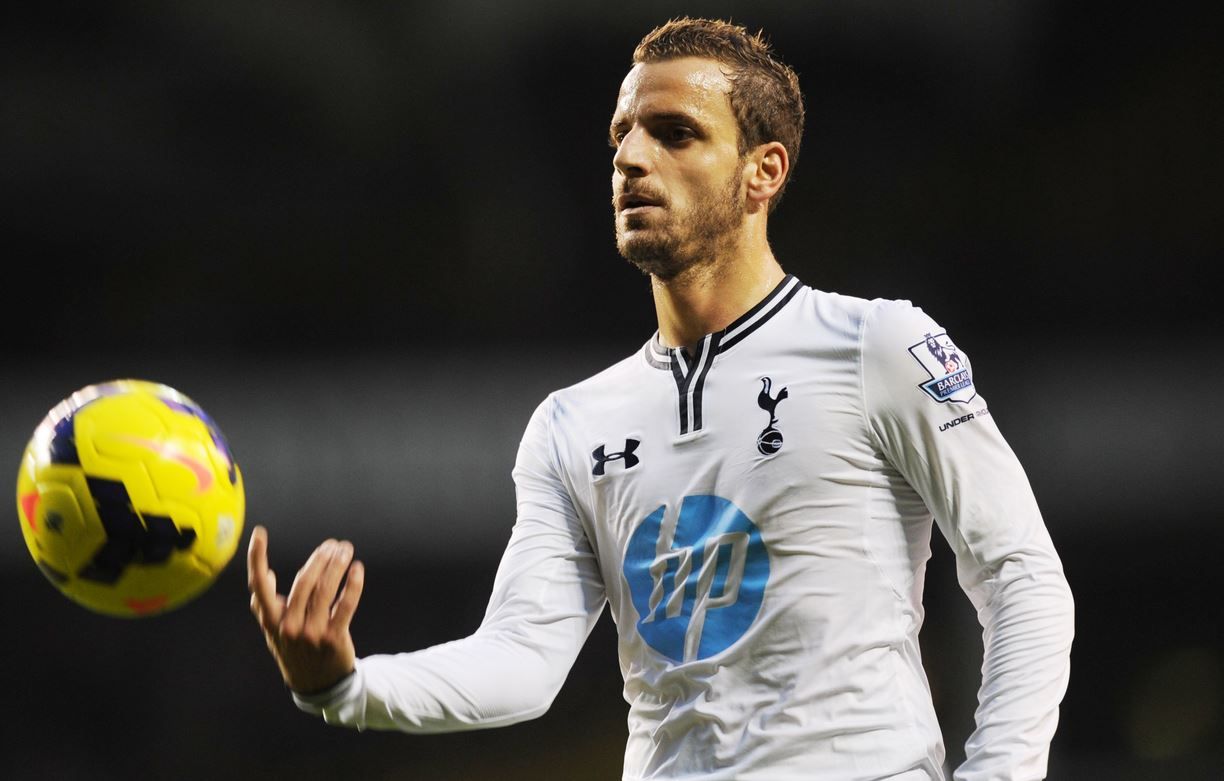
Why the lack of tempo in Spurs’ midfield is stifling Soldado’s goalscoring ability
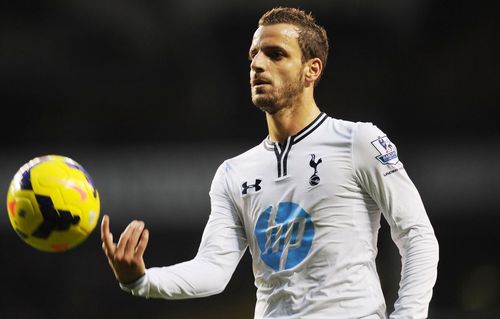
Roberto Soldado has struggled to score from open play
Roberto Soldado cost Tottenham twenty six million pounds. He stuck away 59 goals in La Liga over the previous three seasons. He has nine years of top-flight experience, and is a regular in a Spain squad which is as eye-catching as it is successful. There is no reason, on paper, why he should be touted as a potential handicap to his side’s hopes of reaching the top-four – or perhaps higher – this season. And yet, with seemingly good reason, this is becoming the case.
Despite what’s largely been interpreted as an underwhelming beginning to this season for Tottenham, Andre Villas-Boas’ side currently sit in fourth place in the Premier League, level on points with the clubs in second and third. It has, though, been their defence that stands as the main reason for this. While their backline has been near-impenetrable, their forward line has often seemed incapable of performing its job equivalently well, with Soldado, the assigned goalscorer with a mere one goal from open play thus far, taking much of the inevitable flack.
It’s not wholly unfair to aim criticism at the Spaniard, but it should be recognised that Spurs’ attacking problems are primarily systemic. Despite the illustrious list of names that now sparkle among the club’s squad sheet – Erik Lamela, Christian Eriksen and Paulinho nestle alongside Soldado himself – the team is yet to click into gear as an attacking unit. Indeed, it is two players who looked the most probable victims of Spurs’ summer overhaul, Andros Townsend and Gylfi Sigurdsson, who have provided the side with its most potent attacking threat. But even in the cases of those two, the goals and penetration have come through moments of individual magic – a majestically struck long-ranger here, a piece of dancing wing-play there – rather than many instances of real wavelength-sharing interplay.

Spurs Chances Created
Soldado, as his critics have readily pointed out, is not a striker who involves himself in much else than scoring goals. He takes little interest in link-up play (which isn’t to say he’s not a hard worker) and lacks the aggression or explosive pace to impose himself as a lone force. Ultimately, Soldado is a penalty-box predator who does not see his remit extending much beyond those white lines, and as such, invites denunciation as ineffectual when he does not deliver goals.
To a certain extend this is fair enough, but when Soldado’s team-mates are not laying on the chances for him – and they haven’t been – his lack of goals serve to disguise their failings as well as exacerbate his own.
In truth, Spurs’ selected supporting attackers, whoever they may be, need to begin playing at a higher tempo. Too often have Spurs been unable or unwilling to zip the ball quickly between the likes of Eriksen, Sigurdsson and Townsend, drawing defenders from their comfort zones and opening up pockets of space for, say, Paulinho or Kyle Walker to storm into. Instead, there has been too many routine, muscle-memory exchanges on the ball on the edge of the penalty box, with little in the way of off-the-ball movement or on-the-ball innovation.
A number of Soldado’s goals for Valencia last season came from early, deep crosses that were bent in behind the opposition defence – something Kyle Walker may be advised to replicate, given his decent technique and eagerness to surge past the halfway line. Andros Towsend, despite being the north Londoners’ unlikely principal threat over the season’s opening stages, would also be wise to vary his game a bit more. In short, Townsend too often looks to shoot, and seems unwilling to get his head up early and assess his options. That’s not to say he’s incapable of doing so, though: when Chelsea visited White Hart Lane in September, the winger showcased his ability to spot and execute a pass, most notably with a terrific dink to put Paulinho in on goal.
Unfortunately such instances have so far proved the exception for the goal-hungry Townsend. That he is currently joint-top in the division’s charts for shots taken says plenty for his self-belief but less for his level of imagination. That his efforts have yielded a single goal (Daniel Sturridge’s, who has taken the same number of shots, currently has 8), and that that goal came from an overhit cross, is instructive.
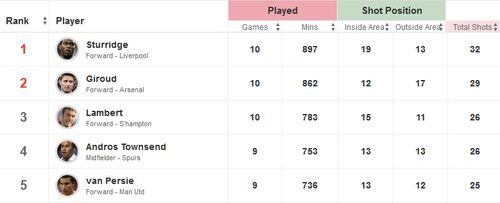
Top Five Premier League Shooters This Season
So far, Townsend’s selection over the club’s headline-grabbing £30million summer signing has been largely justified –he is, it should be said, enjoying a fine and terrifically exciting season – but Lamela boasts the pedigree and silky technique that Townsend does not, and his introduction – though not necessarily in Townsend’s place – is surely a matter of time. The Argentine scored 15 goals and made 55 chances in Serie A last term, but is yet to start a Premier League game since his move to London.
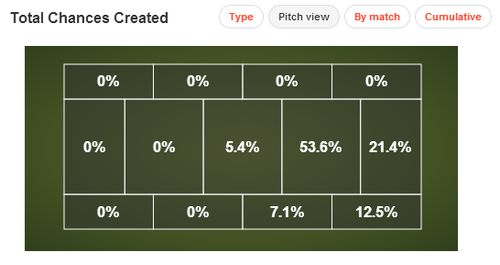
Erik Lamela Chances Created Last Season
None of this is to say that Soldado himself can’t raise his own game and increase his likelihood of getting chances – during the weekend’s trip to Everton, there was at least one occasion when he seemed indifferent to getting on the end of a promising Spurs attack. Sunday’s was, on the whole, a poor showing from the Spaniard, and he will need to show more hunger than he did then.
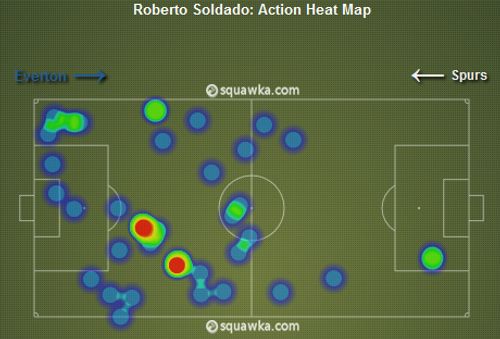
Roberto Soldado Heat Map v Everton
But, to lay the blame entirely on Soldado is to miss the point: Spurs’ attack is currently a dysfunctional structure. Individual improvement will go some way to remedying this, but more imperative is the need for the front-line as a whole to start to play with flow, movement and tempo. This is most likely to come with time, combined with hard work on the training pitch and a generous dash of good coaching.
On the one hand, then, patience is needed – and with Spurs currently standing in joint-second, it’s arguably been earned. That said though, with over a quarter of the season having now elapsed and Spurs due to face both Manchester clubs and Liverpool in their next six league fixtures, the clock is ticking.